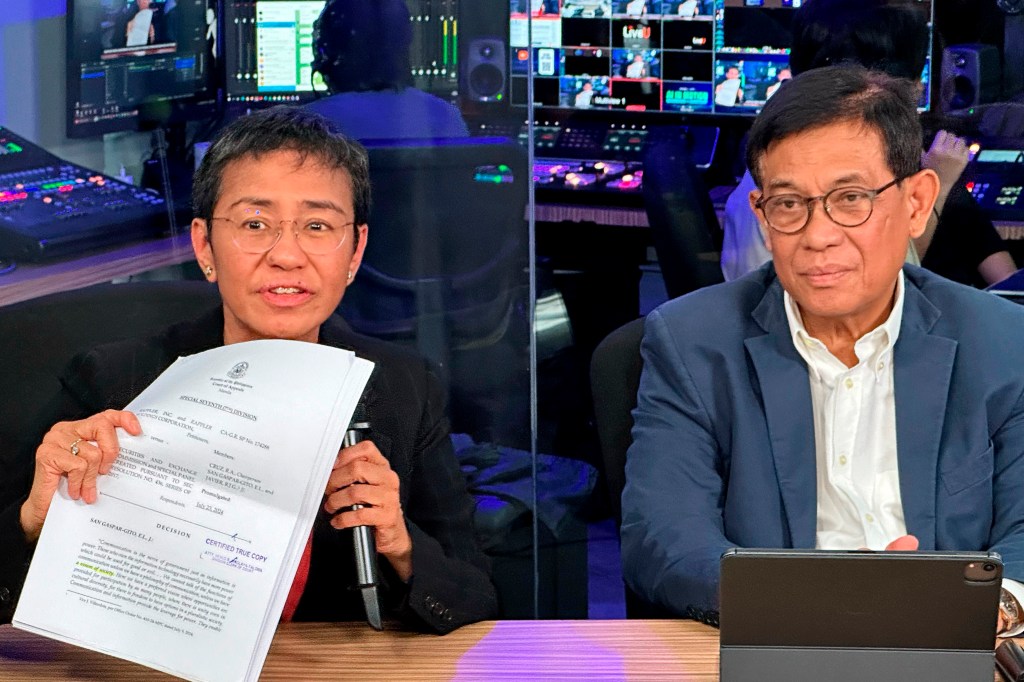Chiang Mai, August 9, 2024—The Committee to Protect Journalists welcomes a Philippine court decision reversing a 2018 regulator’s order to shut down the independent news site Rappler, which was co-founded in 2012 by Nobel laureate Maria Ressa and reported critically on former President Rodrigo Duterte.
“The Court of Appeal’s decision to void a 2018 government agency shutdown order against Rappler is long overdue and rightly restores the publication’s legal standing as a locally controlled media company,” said Shawn Crispin, CPJ’s senior Southeast Asia representative. “Philippine authorities should leverage this verdict to drop all pending cases against Rappler and its co-founder Maria Ressa and stop using spurious legal means to harass the media.”
The country’s corporate regulator, the Philippine Securities and Exchange Commission, ruled in 2018 that Rappler had violated a constitutional ban on foreign control of local media companies by issuing Philippine Depositary Receipts (PDR) — a financial instrument — to the U.S.-based Omidyar Network, a philanthropic organization which had invested in the news site, and canceled its certificate of incorporation.
Ressa, who won CPJ’s 2018 Gwen Ifill Press Freedom Award and is a CPJ board member, is appealing her 2020 conviction in a cyber libel case and is also facing charges stemming from the Omidyar investment, for which she could be jailed for 15 years.
The July 23 ruling, which was made public on August 9, validated Rappler’s defense that the PDRs did not confer ownership or control.
